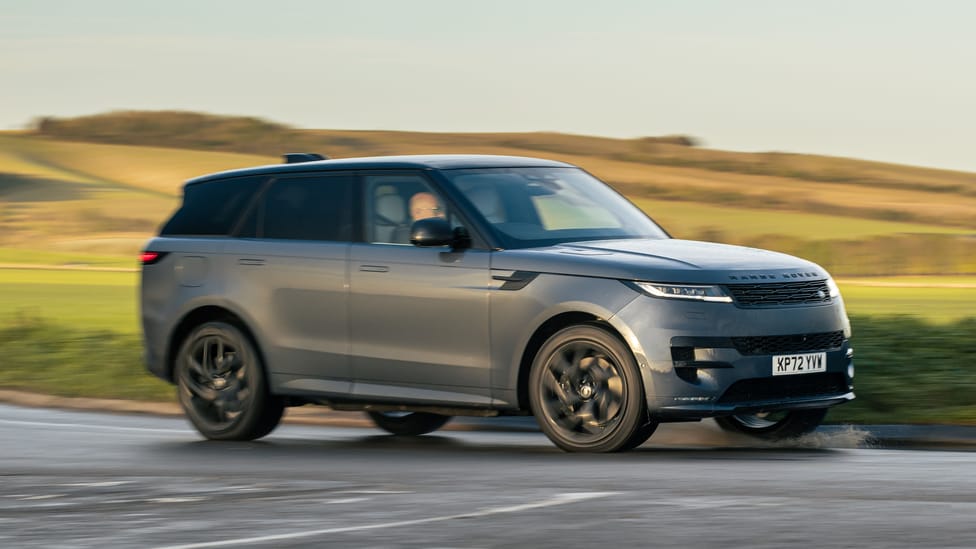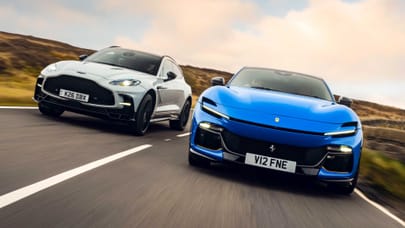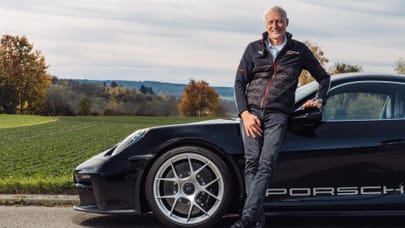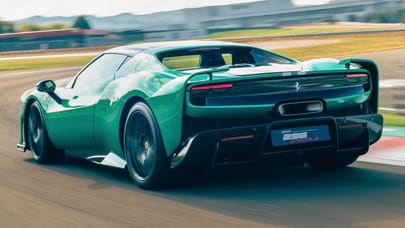
Opinion: cars are getting too heavy, but how can we turn it around?
Shouldn't lighter cars and better EV infrastructure be the goal, rather than heavier, more powerful cars with longer ranges?
Weight. It’s spiralling upwards. Now, does anyone actually care? The answer, unfortunately, appears to be no. At the recent unveil of the EX90 Volvo spoke openly about it weighing nearly three tonnes. I stuck a Range Rover Sport P400e plug-in hybrid on a weighbridge recently and it was 2,860kg with half a tank of fuel. It’s not long since anything over two tonnes was considered hefty, and now, early in the electric era, we’re knocking on the door of three.
So what, you might be thinking. That car will be safer, it’ll go further because it has a bigger battery, what’s the issue?
We can deal with those in turn. Safety first. Ha. So your two tonne car now weighs three. It probably has more airbags, more passive safety systems such as deformation zones and brake assist cameras that have earned it a five star EuroNCAP rating. But it also has more momentum. And although its weight has gone up by 33 per cent, its brakes aren’t 33 per cent more powerful. Because those sort of mechanical improvements just aren’t possible.
The 2,860kg Range Rover Sport took 107.94 metres to stop from 100mph, one of the worst figures we’ve ever recorded. Do 70mph, smash the brakes and it’ll be 54 metres before you stop. Here’s an equivalent weighing about a tonne less: Audi’s A6 Allroad 50TDI. It stops from 70mph in 44 metres. At the point it stops, the RRS will still be doing 30mph with nearly three tonnes of momentum. So safer for whom exactly?
I’m not picking on Land Rover here, because the same applies to all heavy cars, from the Mercedes G-Class to the Tesla Model Y. All have poor stopping power. Avoiding the accident in the first place is the challenge. After all, weight doesn’t change direction well either.
Moving on. In the context of electric cars, all we’re interested in is range. And the reason we are is that the recharging infrastructure is hopeless. If we could guarantee no queues and no charger issues, 200 miles of range would be plenty. Instead because the network is unreliable, we’re having to try and jump from departure to destination in one hit, and to do that we’re demanding bigger, heavier batteries.
Our network isn’t alone in not being fit for purpose – it’s the same across Europe and the US. But bigger, heavier batteries demand more resources, more materials and more energy. That’s the side that car firms don’t want to talk about and buyers don’t want to know about, even though range is now the only statistic around electric cars that anyone talks about. 0-60mph is out the window, weight seems almost taboo – if we want electric cars we seemingly have to put up with it.
Governments and legislators are now beginning to make the noises around emissions from other parts of the car – specifically micro-particles from brakes and tyres. It’ll be decades before that becomes anything more than noises, though. Same, I suspect, for solid state batteries. When – if – they arrive, they should be 30 per cent lighter (more power dense) than Li-ion (and better for the environment), so with a 100kWh battery pack weighing around 700kg, you’d save around 230kg. It’s a big chunk. But it’s not revolutionary. And it’ll be expensive. And I suspect car firms will choose to fit bigger, heavier packs to extend range rather than smaller ones to maintain it and save weight.
The trouble with all of this is that light weight is expensive to engineer and hard to sell. You can’t sell light weight as easily as you can more power. You can’t engineer weight down as cost effectively as you can up power. So power – or a bigger battery – always wins. The customer needs clear, simple messaging. More power = faster, bigger battery = further. The end. The only company not in the rarified megabucks stratosphere that has set weight out as something to be reduced is Alpine. Has it worked? Not really. Corking cars, but they haven’t sold.
And don’t think that companies that have the resources are going to try and shift this. Next year Hyundai will launch the Ioniq 5N. It’ll be pitched as a hot hatch, and it’ll be very, very fast because it’ll likely use the 577bhp twin motor, 4WD setup from the Kia EV6 GT. But it’ll probably weigh 2.2 tonnes. Assuming that’s the case, the latest Civic Type R – one of its nearest rivals – will be 800kg lighter. It’ll be slower too. Bet it stops faster though. And around a track I’ll call it for the 324bhp Civic now.
Top Gear
Newsletter
Thank you for subscribing to our newsletter. Look out for your regular round-up of news, reviews and offers in your inbox.
Get all the latest news, reviews and exclusives, direct to your inbox.
A final thought. According to current legislation, passenger cars can only weigh up to 3.5 tonnes GVW. Gross Vehicle Weight (sometimes MAM, Maximum Authorised Mass) – the weight of the car and everything in it or on it. Many cars are close to this already. If car plus occupants and baggage weighs more than that it becomes an HGV and you need a C1 licence to drive it (if you passed your test before 1997 you have this entitlement already). Unsurprisingly there are rumours that car makers are already lobbying to have the definition of a car extended. They don’t see 3.5 tonnes as a barrier in other words.
I don’t know how we reset this trend, and if I’m honest I don’t think we can because the motivation isn’t there from any of the interested parties: the legislators, the car firms or the customers. In fact it’s only the legislators who stand a chance of changing this. And only then by doing something radical such as taxing weight, or benefitting more efficient cars with better mile per kWh ratings. The British Government has already said the tax free status of EVs will stop in 2025, with tax imposed based on the vehicle’s list price. Wouldn’t it make more of a statement, be better for the environment and our carbon pledges if they encouraged people to drive lighter electric cars? Pipe dream? Tell us what you think below.
Trending this week
- 2026 TopGear.com Awards
"Engineering at the cutting edge": why the Ferrari F80 is our hypercar of the year








